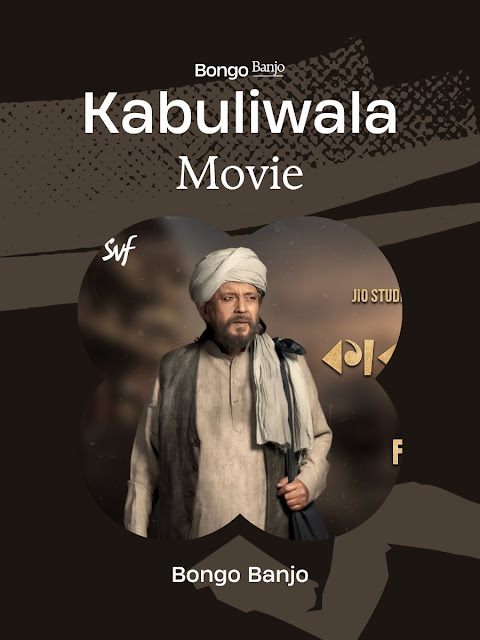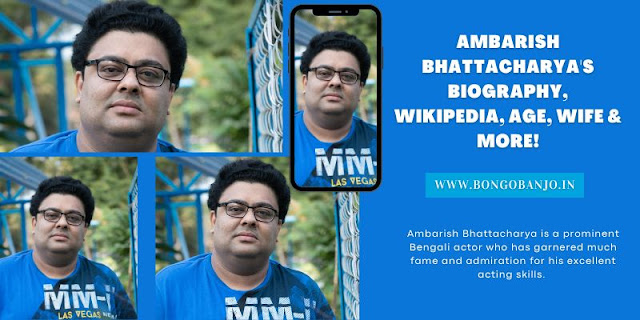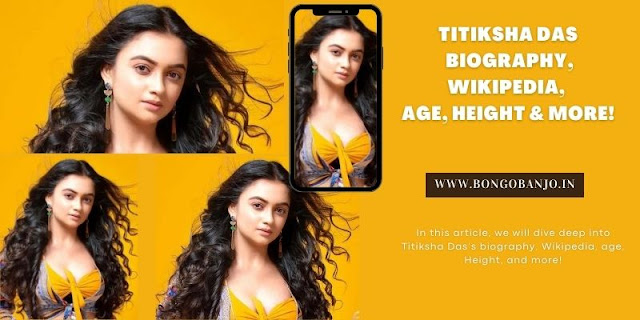Kabuliwala Bengali Movie Review!
Explore the cinematic realm of Suman Ghosh's adaptation of Rabindranath Tagore's timeless tale, "Kabuliwala," set against the backdrop of 1970s India.
Uncover the nuances of Mithun Chakraborty's portrayal and the director's modern approach, as we delve into the emotional tapestry of this iconic story.
Kabuliwala (1970s): A Fresh Perspective on a Timeless Tale
Rabindranath Tagore's classic "Kabuliwala" finds new life in Suman Ghosh's cinematic adaptation, set in the dynamic landscape of 1970s India.
This review delves into the director's innovative take, capturing the essence of the era and the characters who bring this timeless tale to the silver screen.
An Evolving Narrative
While Tagore penned "Kabuliwala" in 1899, Suman Ghosh's rendition catapults the story into the mid-1970s.
Taking advantage of creative freedom, the director introduces Rahmat, the Afghan Kabuliwala, against the backdrop of the release of the film "Rajkonya" and the turbulent times following the India-Pakistan war.
Suman Ghosh weaves a contemporary narrative, shedding light on societal dynamics and individual struggles.
Character Dynamics and Emotional Resonance
Suman Ghosh's adaptation introduces subtle yet impactful changes in character dynamics. Anwar, portrayed as a tormentor, seizes the opportunity to exploit Rahmat amidst the post-war chaos.
Unlike previous versions, this iteration explores the intricacies of relationships against the backdrop of social unrest, adding layers to the narrative.
Mithun Chakraborty's Masterful Portrayal
Mithun Chakraborty takes on the role of Rahmat with a nuanced performance, breaking away from his usual exaggerated style.
The film introduces small characters that enhance the cinematic experience, such as Nirmal Ghosh and Jethumoni.
Mithun Chakraborty's internalization of the character culminates in a poignant final scene, providing the audience with a touching and empathetic experience, making it the standout moment of the film.
Musical Brilliance by Indradeep Dasgupta
The film's background score and songs, crafted by music director Indradeep Dasgupta, breathe life into moments of friendship between Mini and Rahmat.
The review explores the seamless integration of music into the narrative, highlighting its significance in enhancing emotional connections between characters.
Suman Ghosh's Direction: A Natural Flow
Suman Ghosh's direction impresses with its natural flow and absence of forced scenes.
However, the review questions the necessity of modernizing "Kabuliwala," suggesting that the timeless nature of Tagore's story might not require such adjustments.
FAQs
Q1: How does Suman Ghosh's adaptation differ from previous versions of "Kabuliwala"?
A1: Suman Ghosh brings the story into the 1970s, introducing subtle changes in character dynamics and societal context, providing a fresh perspective on the timeless tale.
Q2: How does Mithun Chakraborty's portrayal contribute to the film?
A2: Mithun Chakraborty's nuanced performance adds depth to the character of Rahmat, breaking away from his usual exaggerated style. The final scene, in particular, stands out as the most touching and empathetic moment in the film.
Q3: What role does the music play in enhancing the cinematic experience?
A3: Indradeep Dasgupta's musical brilliance adds life to moments of friendship between Mini and Rahmat, enriching the emotional connections between the characters.
Q4: Does Suman Ghosh's modernization of "Kabuliwala" enhance or detract from the original story?
A4: While Suman Ghosh's direction is praised for its natural flow, the review questions the necessity of modernization, suggesting that the timeless nature of Tagore's story may not require such adjustments.
Conclusion: Embracing the Timelessness of "Kabuliwala"
In the realm of Suman Ghosh's cinematic journey through "Kabuliwala," we witness the convergence of tradition and modernity, a delicate balance that both enriches and challenges the timeless narrative penned by Rabindranath Tagore.
The director's choice to transport the tale to the tumultuous 1970s adds layers to the story, shedding light on societal complexities and individual struggles.
Mithun Chakraborty's departure from his usual style breathes life into Rahmat, creating a character that resonates beyond the screen.
The nuanced performances, coupled with the introduction of small yet impactful characters, elevate the film's emotional impact.
Indradeep Dasgupta's musical prowess further deepens the connections between characters, underscoring the moments of friendship and shared experiences.
While Suman Ghosh's direction is commendable for its natural flow and avoidance of forced scenes, the question arises: Was modernization necessary for "Kabuliwala"?
The conclusion drawn suggests that the timeless essence of Tagore's narrative may not have required such adjustments.
The film's strength lies in its ability to evoke empathy and touch the audience, transcending the need for contemporary embellishments.
In the end, "Kabuliwala" stands as a testament to the enduring power of storytelling, where the interplay of characters, music, and direction creates a cinematic tapestry that resonates with audiences, regardless of the era.
Suman Ghosh's adaptation invites us to rediscover the beauty of Tagore's creation while prompting reflection on the delicate dance between tradition and modernity in the ever-evolving landscape of cinema.






%20Biography,%20Age,%20Career,%20Wife,%20Networth.jpg)


%20Biography,%20Career,%20Age,%20Wife,%20Networth%20&%20More.jpg)





